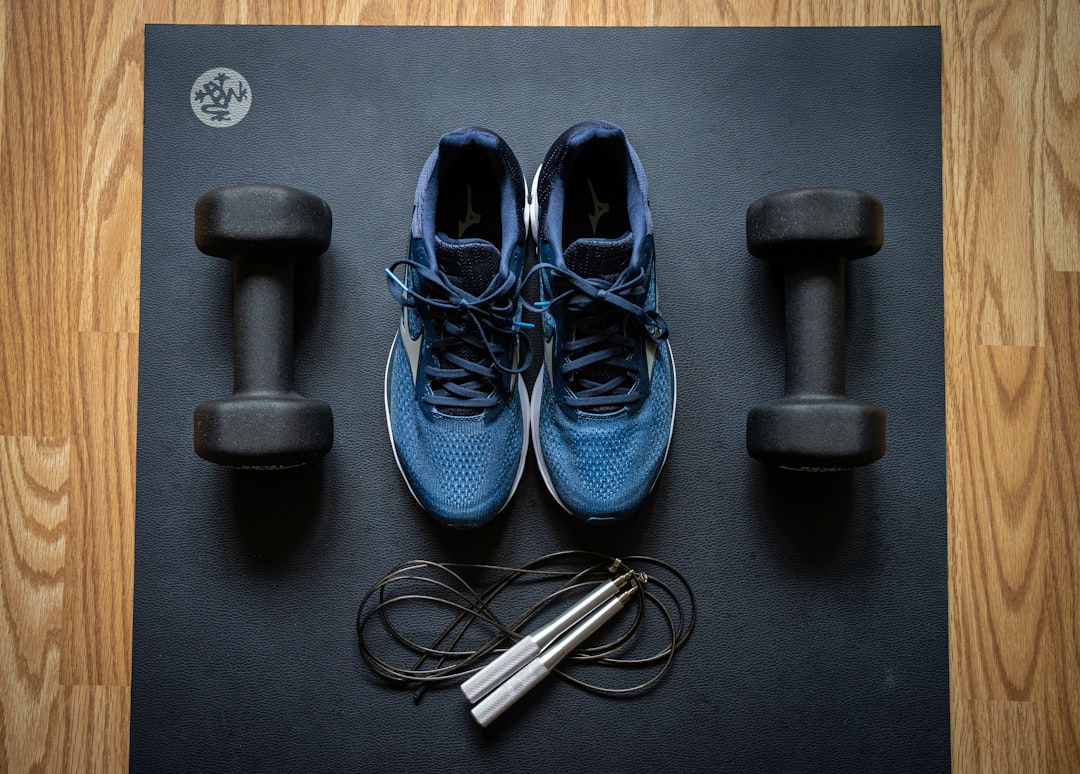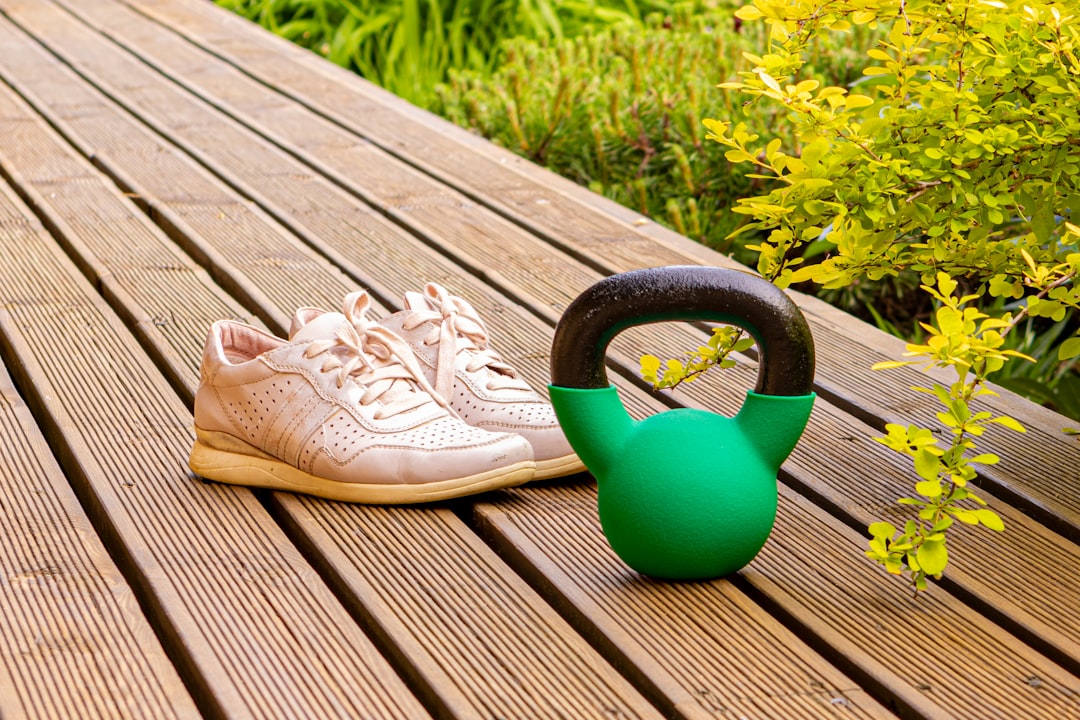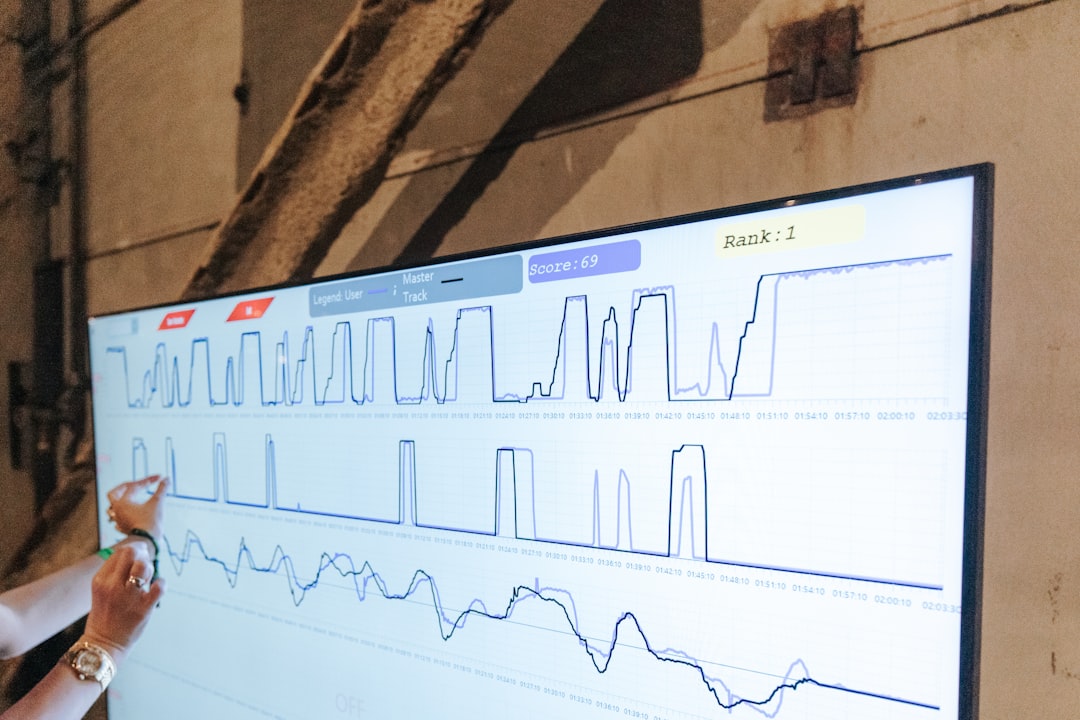Unlocking Holistic Well-being: Explore the Connection Between Mental and Physical Health
Holistic well-being fundamentally hinges on the intricate connection between mental health and physical health. It's a symbiotic relationship where one profoundly influences the other, creating a ripple effect across an individual's entire life. Engaging in regular exercise, for instance, isn't just about building muscle or losing weight; it's a powerful tool for enhancing mental health, reducing symptoms of Depression and anxiety, and improving overall stress resilience. The WHO consistently highlights the global burden of mental illness and preventable physical health conditions, underscoring the urgent need for a comprehensive approach that integrates both aspects. Understanding this dual impact is crucial for developing effective strategies that foster a balanced and healthy lifestyle. By recognizing how physical activity can elevate mood and cognitive function, we can champion better personal and public health initiatives. This synergy contributes significantly to an individual's overall quality of life and long-term vitality.

Illustration depicting interconnected gears symbolizing the symbiotic relationship between mental and physical health
Holistic well-being fundamentally hinges on the intricate connection between mental health and physical health. It's a symbiotic relationship where one profoundly influences the other, creating a ripple effect across an individual's entire life. Engaging in regular exercise, for instance, isn't just about building muscle or losing weight; it's a powerful tool for enhancing mental health, reducing symptoms of Depression and anxiety, and improving overall stress resilience. The WHO consistently highlights the global burden of mental illness and preventable physical health conditions, underscoring the urgent need for a comprehensive approach that integrates both aspects. Understanding this dual impact is crucial for developing effective strategies that foster a balanced and healthy lifestyle. By recognizing how physical activity can elevate mood and cognitive function, we can champion better personal and public health initiatives. This synergy contributes significantly to an individual's overall quality of life and long-term vitality.
Illustration depicting interconnected gears symbolizing the symbiotic relationship between mental and physical health
The Fundamental Link: Why Physical and Mental Well-being Matters
The fundamental link between physical and mental well-being is increasingly recognized as a cornerstone of public health. When we consider the profound impact that our physical state has on our mental health, and vice-versa, the importance of a holistic perspective becomes undeniable. For example, chronic physical health problems often lead to increased rates of depression and anxiety, while conversely, mental health conditions can manifest as physical symptoms and even exacerbate existing ailments. Regular physical activity is a powerful antidote, improving not only physical health but also significantly boosting mental health by releasing beneficial neurochemicals. The United States government, through various official websites, emphasizes integrating physical activity into daily routines as a key strategy for enhancing public health. This comprehensive view ensures that interventions address the individual as a whole, rather than compartmentalizing health issues.

Infographic showing the positive feedback loop between good physical health and improved mental well-being
The fundamental link between physical and mental well-being is increasingly recognized as a cornerstone of public health. When we consider the profound impact that our physical state has on our mental health, and vice-versa, the importance of a holistic perspective becomes undeniable. For example, chronic physical health problems often lead to increased rates of depression and anxiety, while conversely, mental health conditions can manifest as physical symptoms and even exacerbate existing ailments. Regular physical activity is a powerful antidote, improving not only physical health but also significantly boosting mental health by releasing beneficial neurochemicals. The United States government, through various official websites, emphasizes integrating physical activity into daily routines as a key strategy for enhancing public health. This comprehensive view ensures that interventions address the individual as a whole, rather than compartmentalizing health issues.
Infographic showing the positive feedback loop between good physical health and improved mental well-being
Abstract: Diving Deep into Mental Health Benefits and Physical Health Synergy
This abstract delves into the profound mental health benefits derived from synergistic physical health practices, particularly focusing on exercise. It examines how consistent physical activity acts as a potent buffer against common mental health challenges such as Depression, anxiety, and stress. The physiological mechanisms are fascinating, involving the release of endorphins and dopamine, which are natural mood elevators. Furthermore, improved sleep quality, a direct benefit of regular exercise, significantly impacts mental wellbeing. The connection is not merely anecdotal; scientific studies consistently demonstrate that individuals who engage in regular physical activity exhibit lower rates of mental health conditions. This synergistic relationship extends beyond symptom reduction, fostering increased self-esteem and cognitive function. Our exploration reveals that addressing physical health through exercise is an indispensable component of any effective mental health strategy, offering a pathway to a more resilient and balanced life.

Abstract art representation of brain activity and physical movement intertwined for mental health
This abstract delves into the profound mental health benefits derived from synergistic physical health practices, particularly focusing on exercise. It examines how consistent physical activity acts as a potent buffer against common mental health challenges such as Depression, anxiety, and stress. The physiological mechanisms are fascinating, involving the release of endorphins and dopamine, which are natural mood elevators. Furthermore, improved sleep quality, a direct benefit of regular exercise, significantly impacts mental wellbeing. The connection is not merely anecdotal; scientific studies consistently demonstrate that individuals who engage in regular physical activity exhibit lower rates of mental health conditions. This synergistic relationship extends beyond symptom reduction, fostering increased self-esteem and cognitive function. Our exploration reveals that addressing physical health through exercise is an indispensable component of any effective mental health strategy, offering a pathway to a more resilient and balanced life.

Abstract art representation of brain activity and physical movement intertwined for mental health
Essential Insights: Defining Health and the Dual Impact of Lifestyle Choices
Defining health encompasses more than just the absence of disease; it's a dynamic state of complete physical, mental, and social well-being. Our lifestyle choices play a pivotal role in shaping this dual impact, with exercise standing out as a critical determinant for both physical health and mental health. A balanced diet, for instance, provides the essential nutrients for optimal brain function and gut health, directly influencing mood and cognitive performance. Conversely, poor eating habits and lack of physical activity can contribute to chronic conditions that predispose individuals to Depression and anxiety. The integration of healthy lifestyle habits, including consistent exercise, eating well, and effective stress management, offers a robust defense against mental health problems and preventable physical health conditions. Prioritizing these elements is not just about extending life expectancy, but enhancing the overall quality of life.

Chart illustrating the impact of various lifestyle choices on both physical and mental well-being
Defining health encompasses more than just the absence of disease; it's a dynamic state of complete physical, mental, and social well-being. Our lifestyle choices play a pivotal role in shaping this dual impact, with exercise standing out as a critical determinant for both physical health and mental health. A balanced diet, for instance, provides the essential nutrients for optimal brain function and gut health, directly influencing mood and cognitive performance. Conversely, poor eating habits and lack of physical activity can contribute to chronic conditions that predispose individuals to Depression and anxiety. The integration of healthy lifestyle habits, including consistent exercise, eating well, and effective stress management, offers a robust defense against mental health problems and preventable physical health conditions. Prioritizing these elements is not just about extending life expectancy, but enhancing the overall quality of life.

Chart illustrating the impact of various lifestyle choices on both physical and mental well-being
Historical Context: Understanding the Evolution of Physical and Mental Health Perspectives
Historically, the understanding of physical and mental health largely operated in silos, with mental illness often stigmatized and treated separately from physical ailments. Ancient civilizations sometimes attributed mental health problems to spiritual forces, while physical health was addressed through herbal remedies and rudimentary surgical procedures. It wasn't until much later that a more integrated perspective began to emerge, recognizing the undeniable links between the body and mind. The enlightenment period, for example, saw early philosophical discussions on consciousness and its relationship to physical well-being. Modern medicine, particularly in the last century, has made significant strides in acknowledging this connection, with an increasing emphasis on holistic health approaches. This evolution underscores the ongoing shift towards recognizing exercise and physical activity as vital components not just for physical health, but also for profound mental health benefits, reshaping our understanding of comprehensive care.

Historical timeline depicting the evolution of understanding mental and physical health connections
Historically, the understanding of physical and mental health largely operated in silos, with mental illness often stigmatized and treated separately from physical ailments. Ancient civilizations sometimes attributed mental health problems to spiritual forces, while physical health was addressed through herbal remedies and rudimentary surgical procedures. It wasn't until much later that a more integrated perspective began to emerge, recognizing the undeniable links between the body and mind. The enlightenment period, for example, saw early philosophical discussions on consciousness and its relationship to physical well-being. Modern medicine, particularly in the last century, has made significant strides in acknowledging this connection, with an increasing emphasis on holistic health approaches. This evolution underscores the ongoing shift towards recognizing exercise and physical activity as vital components not just for physical health, but also for profound mental health benefits, reshaping our understanding of comprehensive care.

Historical timeline depicting the evolution of understanding mental and physical health connections
Current State of Play: Addressing Mental Health Disadvantage in Rural Areas and Beyond
The current state of play reveals significant disparities in addressing mental health disadvantage, particularly in rural areas. Residents in remote areas often face unique challenges, including limited access to healthcare, stigma, and dispersed populations, which exacerbate mental health problems like depression and anxiety. These regions frequently lack sufficient resources for mental health support, despite studies showing higher rates of certain mental disorders compared to urban counterparts. The critical role of physical activity in mitigating these disadvantages cannot be overstated. Engaging in regular exercise provides an accessible and effective intervention, offering benefits that extend beyond physical health to significantly improve mental wellbeing. Initiatives aimed at promoting physical activity in rural settings are vital to bridge this gap, ensuring that everyone, regardless of their location, has opportunities to enhance their mental and physical well-being. Exploring innovative solutions is paramount, and platforms like discover advanced sports and fitness programs offer new avenues for engagement.

Map highlighting mental health resource disparities between urban and rural areas
The current state of play reveals significant disparities in addressing mental health disadvantage, particularly in rural areas. Residents in remote areas often face unique challenges, including limited access to healthcare, stigma, and dispersed populations, which exacerbate mental health problems like depression and anxiety. These regions frequently lack sufficient resources for mental health support, despite studies showing higher rates of certain mental disorders compared to urban counterparts. The critical role of physical activity in mitigating these disadvantages cannot be overstated. Engaging in regular exercise provides an accessible and effective intervention, offering benefits that extend beyond physical health to significantly improve mental wellbeing. Initiatives aimed at promoting physical activity in rural settings are vital to bridge this gap, ensuring that everyone, regardless of their location, has opportunities to enhance their mental and physical well-being. Exploring innovative solutions is paramount, and platforms like discover advanced sports and fitness programs offer new avenues for engagement.

Map highlighting mental health resource disparities between urban and rural areas
Revolutionary Strategies for Enhancing Mental Health and Physical Activity
Revolutionary strategies for enhancing mental health and physical activity are emerging, focusing on integrated approaches that leverage the powerful synergy between the mind and body. These strategies move beyond traditional siloed treatments, recognizing that consistent exercise is not merely a physical pursuit but a fundamental component of psychological well-being. They emphasize the importance of making physical activity accessible and enjoyable, thereby increasing adherence and long-term benefits for mental health. Innovations include technology-driven exercise programs tailored for individuals with depression or anxiety, community-based initiatives promoting group physical activity, and educational campaigns highlighting the direct correlation between movement and mood enhancement. By integrating these practices, we can create a more resilient population, capable of better managing stress and preventing the onset of severe mental health conditions, thereby reducing the overall burden of mental illness.

Illustration of diverse physical activities contributing to mental health and happiness
Revolutionary strategies for enhancing mental health and physical activity are emerging, focusing on integrated approaches that leverage the powerful synergy between the mind and body. These strategies move beyond traditional siloed treatments, recognizing that consistent exercise is not merely a physical pursuit but a fundamental component of psychological well-being. They emphasize the importance of making physical activity accessible and enjoyable, thereby increasing adherence and long-term benefits for mental health. Innovations include technology-driven exercise programs tailored for individuals with depression or anxiety, community-based initiatives promoting group physical activity, and educational campaigns highlighting the direct correlation between movement and mood enhancement. By integrating these practices, we can create a more resilient population, capable of better managing stress and preventing the onset of severe mental health conditions, thereby reducing the overall burden of mental illness.

Illustration of diverse physical activities contributing to mental health and happiness
Abstract: Diving Deep into Mental Health Benefits and Physical Health Synergy
The power of movement is undeniable, with exercise serving as a profound catalyst for both physical and mental well-being. Regular physical activity triggers a cascade of physiological mechanisms that directly benefit mental health. It reduces chronic stress, lowers levels of cortisol, and enhances cardiovascular health, all of which contribute to a more stable and resilient psychological state. Beyond the biological impact, engaging in exercise fosters a sense of accomplishment, improves self-concept, and provides opportunities for social interaction, combating feelings of loneliness and isolation which often accompany depression and anxiety. This holistic improvement in mental wellbeing is critical for individuals seeking to maintain a high quality of life. The consistent engagement in varied forms of exercise, from moderate intensity walking to more strenuous sports, offers a potent, natural therapy that supports overall physical and mental well-being.

Dynamic image of people enjoying various forms of exercise outdoors
The power of movement is undeniable, with exercise serving as a profound catalyst for both physical and mental well-being. Regular physical activity triggers a cascade of physiological mechanisms that directly benefit mental health. It reduces chronic stress, lowers levels of cortisol, and enhances cardiovascular health, all of which contribute to a more stable and resilient psychological state. Beyond the biological impact, engaging in exercise fosters a sense of accomplishment, improves self-concept, and provides opportunities for social interaction, combating feelings of loneliness and isolation which often accompany depression and anxiety. This holistic improvement in mental wellbeing is critical for individuals seeking to maintain a high quality of life. The consistent engagement in varied forms of exercise, from moderate intensity walking to more strenuous sports, offers a potent, natural therapy that supports overall physical and mental well-being.
Dynamic image of people enjoying various forms of exercise outdoors
Understanding the Beta-Endorphins Release: Exercise's Impact on Mental Health
Understanding the beta-endorphins release mechanism is key to appreciating exercise's profound impact on mental health. During physical activity, especially moderate to vigorous exercise, the body releases these powerful neurochemicals, often referred to as natural painkillers. Beta-endorphins bind to opioid receptors in the brain, producing feelings of euphoria and well-being, commonly known as a 'runner's high.' This physiological response directly counters the negative effects of stress and can significantly alleviate symptoms of depression and anxiety. Beyond the immediate mood boost, regular exercise helps regulate sleep patterns, which is critical for mental health, and improves cognitive function. The consistent release of these endogenous opioids contributes to a sustained improvement in overall mental wellbeing, making exercise an essential, non-pharmacological intervention for various mental health conditions.

Scientific diagram illustrating the release of beta-endorphins during exercise in the brain
Understanding the beta-endorphins release mechanism is key to appreciating exercise's profound impact on mental health. During physical activity, especially moderate to vigorous exercise, the body releases these powerful neurochemicals, often referred to as natural painkillers. Beta-endorphins bind to opioid receptors in the brain, producing feelings of euphoria and well-being, commonly known as a 'runner's high.' This physiological response directly counters the negative effects of stress and can significantly alleviate symptoms of depression and anxiety. Beyond the immediate mood boost, regular exercise helps regulate sleep patterns, which is critical for mental health, and improves cognitive function. The consistent release of these endogenous opioids contributes to a sustained improvement in overall mental wellbeing, making exercise an essential, non-pharmacological intervention for various mental health conditions.

Scientific diagram illustrating the release of beta-endorphins during exercise in the brain
Key Neurochemical Concepts: How Exercise Elevates Mood
Delving into key neurochemical concepts reveals precisely how exercise elevates mood, offering significant benefits for mental health. Beyond beta-endorphins, physical activity stimulates the production of other crucial neurotransmitters like dopamine, serotonin, and norepinephrine. Dopamine, often associated with pleasure and reward, increases motivation and focus. Serotonin plays a vital role in regulating mood, sleep, and appetite, while norepinephrine helps manage stress. The cumulative effect of these neurochemical changes is a powerful mood elevation, contributing to reduced symptoms of depression and anxiety. Regular exercise acts as a natural antidepressant and anxiolytic, helping to balance brain chemistry and improve emotional regulation. This intricate interplay underscores the biological foundation for why physical activity is so effective in supporting overall mental wellbeing.

Illustrative diagram showing neurotransmitter pathways affected by exercise
Delving into key neurochemical concepts reveals precisely how exercise elevates mood, offering significant benefits for mental health. Beyond beta-endorphins, physical activity stimulates the production of other crucial neurotransmitters like dopamine, serotonin, and norepinephrine. Dopamine, often associated with pleasure and reward, increases motivation and focus. Serotonin plays a vital role in regulating mood, sleep, and appetite, while norepinephrine helps manage stress. The cumulative effect of these neurochemical changes is a powerful mood elevation, contributing to reduced symptoms of depression and anxiety. Regular exercise acts as a natural antidepressant and anxiolytic, helping to balance brain chemistry and improve emotional regulation. This intricate interplay underscores the biological foundation for why physical activity is so effective in supporting overall mental wellbeing.

Illustrative diagram showing neurotransmitter pathways affected by exercise
Important Factors: Frequency and Intensity in Physical Activity Routines
Important factors such as frequency and intensity are critical considerations when designing physical activity routines for optimal mental health benefits. The World Health Organization (WHO) recommends at least 150 minutes of moderate-intensity aerobic physical activity or 75 minutes of vigorous-intensity aerobic physical activity per week, along with muscle-strengthening activities. For mental health, consistency is often more impactful than extreme intensity. Regular, moderate exercise, such as brisk walking or jogging most days of the week, can be highly effective in reducing stress, alleviating symptoms of depression, and improving overall mood. The key is finding a sustainable routine that fits an individual's lifestyle and gradually increasing the frequency and intensity as fitness levels improve, ensuring long-term adherence and maximum benefits for both physical health and mental wellbeing.

Graph correlating exercise frequency and intensity with improved mental health outcomes
Important factors such as frequency and intensity are critical considerations when designing physical activity routines for optimal mental health benefits. The World Health Organization (WHO) recommends at least 150 minutes of moderate-intensity aerobic physical activity or 75 minutes of vigorous-intensity aerobic physical activity per week, along with muscle-strengthening activities. For mental health, consistency is often more impactful than extreme intensity. Regular, moderate exercise, such as brisk walking or jogging most days of the week, can be highly effective in reducing stress, alleviating symptoms of depression, and improving overall mood. The key is finding a sustainable routine that fits an individual's lifestyle and gradually increasing the frequency and intensity as fitness levels improve, ensuring long-term adherence and maximum benefits for both physical health and mental wellbeing.
Graph correlating exercise frequency and intensity with improved mental health outcomes
Analysis of the HPA Axis: The Mental Health Affecting Physical Health Dynamic
An analysis of the Hypothalamic-Pituitary-Adrenal (HPA) axis illuminates the profound dynamic where mental health affecting physical health becomes evident. The HPA axis is our central stress response system; when activated by chronic stress or mental health conditions like anxiety and depression, it leads to elevated cortisol levels. This sustained activation can have detrimental physical health consequences, including increased inflammation, impaired immune function, sleep disturbances, and a heightened risk of chronic diseases such as heart disease and diabetes. Exercise acts as a powerful regulator of the HPA axis, helping to normalize cortisol levels and reduce the physiological impact of stress. By engaging in regular physical activity, individuals can effectively mitigate the negative feedback loop where poor mental health exacerbates physical health problems, fostering a more balanced and resilient system.

Diagram illustrating the HPA axis response to stress and the moderating effect of exercise
An analysis of the Hypothalamic-Pituitary-Adrenal (HPA) axis illuminates the profound dynamic where mental health affecting physical health becomes evident. The HPA axis is our central stress response system; when activated by chronic stress or mental health conditions like anxiety and depression, it leads to elevated cortisol levels. This sustained activation can have detrimental physical health consequences, including increased inflammation, impaired immune function, sleep disturbances, and a heightened risk of chronic diseases such as heart disease and diabetes. Exercise acts as a powerful regulator of the HPA axis, helping to normalize cortisol levels and reduce the physiological impact of stress. By engaging in regular physical activity, individuals can effectively mitigate the negative feedback loop where poor mental health exacerbates physical health problems, fostering a more balanced and resilient system.
Diagram illustrating the HPA axis response to stress and the moderating effect of exercise
Critical Elements: Stress Reduction and Cortisol Regulation Through Exercise
Critical elements for stress reduction and cortisol regulation are intrinsically linked to regular exercise, offering substantial benefits for mental health. Chronic stress can lead to sustained high levels of cortisol, a hormone that, over time, can contribute to numerous physical health problems and worsen mental health conditions like depression and anxiety. Exercise provides a healthy outlet for stress, allowing the body to process and dissipate pent-up tension. It also helps to re-calibrate the body's stress response system, leading to more efficient cortisol regulation. This means that individuals who engage in consistent physical activity are better equipped to handle stressors without experiencing the prolonged physiological consequences. This effective stress management is a cornerstone of maintaining both robust physical health and optimal mental wellbeing.

Scientific illustration showing cortisol levels decreasing with regular exercise
Critical elements for stress reduction and cortisol regulation are intrinsically linked to regular exercise, offering substantial benefits for mental health. Chronic stress can lead to sustained high levels of cortisol, a hormone that, over time, can contribute to numerous physical health problems and worsen mental health conditions like depression and anxiety. Exercise provides a healthy outlet for stress, allowing the body to process and dissipate pent-up tension. It also helps to re-calibrate the body's stress response system, leading to more efficient cortisol regulation. This means that individuals who engage in consistent physical activity are better equipped to handle stressors without experiencing the prolonged physiological consequences. This effective stress management is a cornerstone of maintaining both robust physical health and optimal mental wellbeing.
Scientific illustration showing cortisol levels decreasing with regular exercise
Best Practices: Integrating Regular Exercise into a Healthy Diet
Best practices for integrating regular exercise into a healthy diet are fundamental for a holistic approach to physical health and mental health. A balanced diet, rich in nutrient-dense foods, provides the necessary fuel for physical activity and supports optimal brain function. For instance, omega-3 fatty acids, found in fish, are crucial for brain health and have been linked to reduced symptoms of depression. Combining regular physical activity with nutritious meals creates a powerful synergy that enhances energy levels, improves mood, and supports cognitive sharpness. This integrated strategy promotes sustainable lifestyle changes, preventing the onset of chronic conditions and bolstering resilience against mental health problems. It's about feeding both the body and mind for peak performance and enduring well-being.

Visual guide showing examples of healthy food pairings with various types of exercise
Best practices for integrating regular exercise into a healthy diet are fundamental for a holistic approach to physical health and mental health. A balanced diet, rich in nutrient-dense foods, provides the necessary fuel for physical activity and supports optimal brain function. For instance, omega-3 fatty acids, found in fish, are crucial for brain health and have been linked to reduced symptoms of depression. Combining regular physical activity with nutritious meals creates a powerful synergy that enhances energy levels, improves mood, and supports cognitive sharpness. This integrated strategy promotes sustainable lifestyle changes, preventing the onset of chronic conditions and bolstering resilience against mental health problems. It's about feeding both the body and mind for peak performance and enduring well-being.
Visual guide showing examples of healthy food pairings with various types of exercise
Essential Insights: Defining Health and the Dual Impact of Lifestyle Choices
Practical approaches to improving your health through lifestyle changes and managing comorbidity are vital for comprehensive well-being. For individuals dealing with mental illness, there's often a higher risk of developing comorbid physical illnesses, such as cardiovascular disease or diabetes, due to factors like medication side effects, poor lifestyle habits, and reduced access to care. Integrating regular exercise is a cornerstone of this strategy, as it directly impacts both physical health and mental health, helping to mitigate these risks. Beyond physical activity, a holistic approach includes nutritious meals, adequate sleep, and avoiding detrimental habits like smoking. These combined lifestyle choices can significantly improve the prognosis for those managing chronic conditions, enhancing their overall quality of life and reducing healthcare expenditures. Effective management of these interwoven health aspects requires collaboration between psychiatry and primary care physicians.

Infographic detailing lifestyle changes to manage comorbidity and improve health
Practical approaches to improving your health through lifestyle changes and managing comorbidity are vital for comprehensive well-being. For individuals dealing with mental illness, there's often a higher risk of developing comorbid physical illnesses, such as cardiovascular disease or diabetes, due to factors like medication side effects, poor lifestyle habits, and reduced access to care. Integrating regular exercise is a cornerstone of this strategy, as it directly impacts both physical health and mental health, helping to mitigate these risks. Beyond physical activity, a holistic approach includes nutritious meals, adequate sleep, and avoiding detrimental habits like smoking. These combined lifestyle choices can significantly improve the prognosis for those managing chronic conditions, enhancing their overall quality of life and reducing healthcare expenditures. Effective management of these interwoven health aspects requires collaboration between psychiatry and primary care physicians.

Infographic detailing lifestyle changes to manage comorbidity and improve health
Implementation Guide: Step-by-Step for Sustainable Physical Activity and Mental Health
This implementation guide provides a step-by-step process for achieving sustainable physical activity and mental health improvements. Begin by setting realistic, achievable goals that align with your current fitness level and personal preferences. Start small, perhaps with 10-15 minutes of moderate exercise daily, and gradually increase duration and intensity. Incorporate activities you genuinely enjoy to foster consistency – whether it’s walking in nature, dancing, or team sports. Track your progress to stay motivated and identify patterns that contribute to your mental wellbeing. Remember that physical activity is a journey, not a destination. Celebrate small victories and be patient with setbacks. Seeking guidance from a healthcare professional or a certified fitness trainer can provide personalized recommendations and ensure your plan is safe and effective for both your physical health and mental health. This structured approach helps cement long-term healthy habits.

Step-by-step graphic illustrating how to start and maintain a physical activity routine
This implementation guide provides a step-by-step process for achieving sustainable physical activity and mental health improvements. Begin by setting realistic, achievable goals that align with your current fitness level and personal preferences. Start small, perhaps with 10-15 minutes of moderate exercise daily, and gradually increase duration and intensity. Incorporate activities you genuinely enjoy to foster consistency – whether it’s walking in nature, dancing, or team sports. Track your progress to stay motivated and identify patterns that contribute to your mental wellbeing. Remember that physical activity is a journey, not a destination. Celebrate small victories and be patient with setbacks. Seeking guidance from a healthcare professional or a certified fitness trainer can provide personalized recommendations and ensure your plan is safe and effective for both your physical health and mental health. This structured approach helps cement long-term healthy habits.
Step-by-step graphic illustrating how to start and maintain a physical activity routine
Step-by-Step Process: Beginning Your Exercise Journey for Physical Well-being
Beginning your exercise journey for physical well-being is a critical step towards enhancing overall health, including mental health. First, consult with your doctor to ensure you're medically cleared for physical activity, especially if you have pre-existing conditions. Next, identify activities you find enjoyable; this increases the likelihood of long-term adherence. Start with achievable goals, such as walking for 30 minutes three times a week, gradually increasing intensity and duration. Focus on incorporating both cardiovascular and strength training exercises for comprehensive physical health benefits. Tracking your progress, perhaps through an app or journal, can provide motivation and a sense of accomplishment. Remember, consistency is more important than intensity, especially when starting. This structured approach ensures a safe and effective transition into a more active lifestyle, supporting both physical and mental well-being.

A beginner-friendly exercise plan graphic with daily activity suggestions
Beginning your exercise journey for physical well-being is a critical step towards enhancing overall health, including mental health. First, consult with your doctor to ensure you're medically cleared for physical activity, especially if you have pre-existing conditions. Next, identify activities you find enjoyable; this increases the likelihood of long-term adherence. Start with achievable goals, such as walking for 30 minutes three times a week, gradually increasing intensity and duration. Focus on incorporating both cardiovascular and strength training exercises for comprehensive physical health benefits. Tracking your progress, perhaps through an app or journal, can provide motivation and a sense of accomplishment. Remember, consistency is more important than intensity, especially when starting. This structured approach ensures a safe and effective transition into a more active lifestyle, supporting both physical and mental well-being.

A beginner-friendly exercise plan graphic with daily activity suggestions
Common Challenges: Overcoming Obstacles to Regular Exercise and Mental Health
Overcoming common challenges to regular exercise and mental health involves addressing issues like lack of motivation, time constraints, and feelings of inadequacy. Many individuals struggling with depression or anxiety find it difficult to initiate or maintain physical activity. One effective strategy is to break down exercise into smaller, manageable chunks, such as two 15-minute walks instead of one 30-minute session. Finding an accountability partner or joining a group exercise class can also provide motivation and social support. For those with limited time, incorporating physical activity into daily routines, like taking the stairs or cycling to work, can be beneficial. Additionally, focusing on the mental health benefits rather than just physical appearance can shift perspective and foster greater adherence, reinforcing that every bit of exercise positively impacts physical and mental health.

Infographic showing common barriers to exercise and practical solutions for overcoming them
Overcoming common challenges to regular exercise and mental health involves addressing issues like lack of motivation, time constraints, and feelings of inadequacy. Many individuals struggling with depression or anxiety find it difficult to initiate or maintain physical activity. One effective strategy is to break down exercise into smaller, manageable chunks, such as two 15-minute walks instead of one 30-minute session. Finding an accountability partner or joining a group exercise class can also provide motivation and social support. For those with limited time, incorporating physical activity into daily routines, like taking the stairs or cycling to work, can be beneficial. Additionally, focusing on the mental health benefits rather than just physical appearance can shift perspective and foster greater adherence, reinforcing that every bit of exercise positively impacts physical and mental health.

Infographic showing common barriers to exercise and practical solutions for overcoming them
Advanced Techniques: Expert Tips for Optimizing Physical Mental Health Outcomes
Advanced techniques for optimizing physical and mental health outcomes involve more nuanced approaches to exercise and lifestyle. This includes incorporating mindfulness into physical activity, such as mindful walking or yoga, which enhances the psychological benefits by fostering a deeper connection between body and mind. High-intensity interval training (HIIT) can be highly effective for cardiovascular health and mood elevation in shorter periods, making it ideal for busy schedules. For a truly transformative experience in enhancing your physical and mental well-being, exploring platforms like experience comprehensive athletic performance training can provide tailored programs and expert guidance. Additionally, optimizing sleep hygiene, through consistent bedtimes and creating a restful environment, further amplifies the benefits of exercise on mental health. Considering personalized nutrition plans that support both physical performance and cognitive function is another advanced strategy.

Professional athlete performing a mindful exercise, showcasing advanced techniques
Advanced techniques for optimizing physical and mental health outcomes involve more nuanced approaches to exercise and lifestyle. This includes incorporating mindfulness into physical activity, such as mindful walking or yoga, which enhances the psychological benefits by fostering a deeper connection between body and mind. High-intensity interval training (HIIT) can be highly effective for cardiovascular health and mood elevation in shorter periods, making it ideal for busy schedules. For a truly transformative experience in enhancing your physical and mental well-being, exploring platforms like experience comprehensive athletic performance training can provide tailored programs and expert guidance. Additionally, optimizing sleep hygiene, through consistent bedtimes and creating a restful environment, further amplifies the benefits of exercise on mental health. Considering personalized nutrition plans that support both physical performance and cognitive function is another advanced strategy.

Professional athlete performing a mindful exercise, showcasing advanced techniques
Expert Tips: Tailoring Exercise for Specific Mental Health Benefits
Expert tips for tailoring exercise to achieve specific mental health benefits emphasize personalization and intentionality. For individuals experiencing anxiety, low-impact activities like yoga, Pilates, or swimming can be particularly effective due to their calming effects and emphasis on breathwork. If dealing with depression, more vigorous aerobic activities, such as running or brisk walking, might be beneficial as they stimulate greater endorphin release and provide a sense of accomplishment. For stress management, activities that allow for focus and flow, like martial arts or rock climbing, can help clear the mind. Integrating outdoor physical activity can also significantly boost mental well-being, thanks to exposure to nature. The key is to listen to your body and mind, adjusting your exercise regimen to meet your evolving mental health needs.

Diagram matching different types of exercise with their specific mental health benefits
Expert tips for tailoring exercise to achieve specific mental health benefits emphasize personalization and intentionality. For individuals experiencing anxiety, low-impact activities like yoga, Pilates, or swimming can be particularly effective due to their calming effects and emphasis on breathwork. If dealing with depression, more vigorous aerobic activities, such as running or brisk walking, might be beneficial as they stimulate greater endorphin release and provide a sense of accomplishment. For stress management, activities that allow for focus and flow, like martial arts or rock climbing, can help clear the mind. Integrating outdoor physical activity can also significantly boost mental well-being, thanks to exposure to nature. The key is to listen to your body and mind, adjusting your exercise regimen to meet your evolving mental health needs.
Diagram matching different types of exercise with their specific mental health benefits
Optimization Strategies: Freedom 360 and Holistic Health Approaches
Optimization strategies, such as those found in Freedom 360 and other holistic health approaches, provide comprehensive frameworks for maximizing physical and mental well-being. These strategies typically integrate physical activity with nutrition, stress reduction techniques, and sufficient sleep to create a synergistic effect on overall health. Freedom 360, for example, might advocate for a circular, all-encompassing approach that considers every aspect of an individual's lifestyle. This could include personalized exercise plans, mindful eating practices, and techniques for effective stress management, all designed to enhance both physical health and mental health. The emphasis is on sustainable, integrated habits that promote long-term resilience against chronic conditions and mental health problems, ensuring a truly holistic improvement in quality of life.

Circular diagram illustrating the interconnected components of holistic health and Freedom 360 principles
Optimization strategies, such as those found in Freedom 360 and other holistic health approaches, provide comprehensive frameworks for maximizing physical and mental well-being. These strategies typically integrate physical activity with nutrition, stress reduction techniques, and sufficient sleep to create a synergistic effect on overall health. Freedom 360, for example, might advocate for a circular, all-encompassing approach that considers every aspect of an individual's lifestyle. This could include personalized exercise plans, mindful eating practices, and techniques for effective stress management, all designed to enhance both physical health and mental health. The emphasis is on sustainable, integrated habits that promote long-term resilience against chronic conditions and mental health problems, ensuring a truly holistic improvement in quality of life.
Circular diagram illustrating the interconnected components of holistic health and Freedom 360 principles
Historical Context: Understanding the Evolution of Physical and Mental Health Perspectives
Sarah-Anne Munoz’s insights highlight the significant real-world impact of physical health and mental well-being initiatives, particularly in rural areas. Her work underscores how factors like limited healthcare access, economic disparities, and social isolation in remote areas contribute to exacerbated mental health issues, often alongside physical health problems. Munoz emphasizes that localized, community-based interventions, focusing on accessible physical activity programs, can dramatically improve outcomes. These programs not only offer structured exercise opportunities but also build social connections, directly combating loneliness and fostering a sense of community. By making physical activity a cornerstone of rural health strategies, it's possible to uplift both the physical health and mental health of dispersed populations, demonstrating that even in resource-constrained environments, impactful solutions can be implemented to address mental health disadvantage.

Portrait of Sarah-Anne Munoz, with a background of a rural community engaged in outdoor activity
Sarah-Anne Munoz’s insights highlight the significant real-world impact of physical health and mental well-being initiatives, particularly in rural areas. Her work underscores how factors like limited healthcare access, economic disparities, and social isolation in remote areas contribute to exacerbated mental health issues, often alongside physical health problems. Munoz emphasizes that localized, community-based interventions, focusing on accessible physical activity programs, can dramatically improve outcomes. These programs not only offer structured exercise opportunities but also build social connections, directly combating loneliness and fostering a sense of community. By making physical activity a cornerstone of rural health strategies, it's possible to uplift both the physical health and mental health of dispersed populations, demonstrating that even in resource-constrained environments, impactful solutions can be implemented to address mental health disadvantage.
Portrait of Sarah-Anne Munoz, with a background of a rural community engaged in outdoor activity
Case Studies: Success Stories of Enhanced Physical and Mental Well-being
Case studies provide compelling evidence of enhanced physical and mental well-being through integrated approaches. One notable example is a community program in a remote area that introduced weekly group fitness classes, resulting in a 30% reduction in reported anxiety and depression symptoms among participants over six months. Another case involved a personalized exercise therapy regimen for an individual with chronic depression, leading to significant improvements in mood, energy levels, and sleep quality, alongside a reduction in medication dosage. These success stories underscore the power of consistent physical activity not just as a preventative measure but as an active treatment for mental health conditions. They illustrate that even small changes in physical activity can yield substantial mental health benefits, proving the efficacy of exercise in real-world scenarios across diverse populations.

Collaged images of individuals demonstrating improved physical and mental well-being
Case studies provide compelling evidence of enhanced physical and mental well-being through integrated approaches. One notable example is a community program in a remote area that introduced weekly group fitness classes, resulting in a 30% reduction in reported anxiety and depression symptoms among participants over six months. Another case involved a personalized exercise therapy regimen for an individual with chronic depression, leading to significant improvements in mood, energy levels, and sleep quality, alongside a reduction in medication dosage. These success stories underscore the power of consistent physical activity not just as a preventative measure but as an active treatment for mental health conditions. They illustrate that even small changes in physical activity can yield substantial mental health benefits, proving the efficacy of exercise in real-world scenarios across diverse populations.

Collaged images of individuals demonstrating improved physical and mental well-being
Success Stories: Community Place-Based Responses to Mental Health Disadvantage
Success stories from community place-based responses to mental health disadvantage often highlight the innovative ways local initiatives leverage physical activity. In one rural town, a walking club specifically for seniors significantly reduced feelings of isolation and improved mood, directly addressing mental health issues prevalent among older, dispersed populations. Another example involves a youth program that combined sports and mentorship, leading to enhanced self-esteem and reduced instances of anxiety and depression among adolescents. These initiatives demonstrate that by tailoring interventions to the specific needs of a community, and by prioritizing accessible forms of physical activity, meaningful improvements in both physical health and mental health can be achieved. These programs not only offer exercise benefits but also build social capital and strengthen community bonds.

Group of people participating in a community walking club in a scenic rural setting
Success stories from community place-based responses to mental health disadvantage often highlight the innovative ways local initiatives leverage physical activity. In one rural town, a walking club specifically for seniors significantly reduced feelings of isolation and improved mood, directly addressing mental health issues prevalent among older, dispersed populations. Another example involves a youth program that combined sports and mentorship, leading to enhanced self-esteem and reduced instances of anxiety and depression among adolescents. These initiatives demonstrate that by tailoring interventions to the specific needs of a community, and by prioritizing accessible forms of physical activity, meaningful improvements in both physical health and mental health can be achieved. These programs not only offer exercise benefits but also build social capital and strengthen community bonds.
Group of people participating in a community walking club in a scenic rural setting
Lessons Learned: From GP Appointment to Comprehensive Healthcare Management
Lessons learned from transitioning from a single GP appointment to comprehensive healthcare management emphasize the importance of a holistic approach that integrates physical activity into mental health care. Historically, a GP appointment might address a physical health condition in isolation, or refer a mental health problem to a specialist without considering the interconnectedness. Modern best practices advocate for primary care physicians to routinely screen for both physical and mental health issues, and to actively prescribe physical activity as a therapeutic intervention. This integrated model recognizes that exercise can reduce the need for medication in some cases, improve treatment adherence, and mitigate side effects. Furthermore, the development of comprehensive digital solutions for healthcare management, as offered by cutting-edge web development for healthcare platforms, is crucial for better coordination and patient outcomes in this integrated care paradigm.

Flowchart illustrating the journey from a GP appointment to integrated holistic healthcare
Lessons learned from transitioning from a single GP appointment to comprehensive healthcare management emphasize the importance of a holistic approach that integrates physical activity into mental health care. Historically, a GP appointment might address a physical health condition in isolation, or refer a mental health problem to a specialist without considering the interconnectedness. Modern best practices advocate for primary care physicians to routinely screen for both physical and mental health issues, and to actively prescribe physical activity as a therapeutic intervention. This integrated model recognizes that exercise can reduce the need for medication in some cases, improve treatment adherence, and mitigate side effects. Furthermore, the development of comprehensive digital solutions for healthcare management, as offered by cutting-edge web development for healthcare platforms, is crucial for better coordination and patient outcomes in this integrated care paradigm.
Flowchart illustrating the journey from a GP appointment to integrated holistic healthcare
Future Trends: Emerging Developments in Physical Activity and Mental Health Research
Future trends in physical activity and mental health research point towards even more sophisticated and personalized interventions. Wearable technology will continue to play a pivotal role, offering real-time data on physical activity levels, sleep patterns, and even stress indicators, allowing for highly individualized exercise prescriptions. Neuroscientific research is deepening our understanding of the psychological mechanisms through which exercise impacts brain activity, hormonal shifts, and overall mental wellbeing, paving the way for targeted exercise therapies for specific mental disorders like depression and anxiety. Furthermore, greater emphasis will be placed on understanding the interplay between gut health, a balanced diet, and physical activity in influencing mood and cognitive function. This evolving landscape promises a future where exercise is unequivocally recognized and utilized as a powerful, evidence-based tool for comprehensive mental and physical well-being.

Futuristic graphic showing wearable tech monitoring health metrics and brain activity
Future trends in physical activity and mental health research point towards even more sophisticated and personalized interventions. Wearable technology will continue to play a pivotal role, offering real-time data on physical activity levels, sleep patterns, and even stress indicators, allowing for highly individualized exercise prescriptions. Neuroscientific research is deepening our understanding of the psychological mechanisms through which exercise impacts brain activity, hormonal shifts, and overall mental wellbeing, paving the way for targeted exercise therapies for specific mental disorders like depression and anxiety. Furthermore, greater emphasis will be placed on understanding the interplay between gut health, a balanced diet, and physical activity in influencing mood and cognitive function. This evolving landscape promises a future where exercise is unequivocally recognized and utilized as a powerful, evidence-based tool for comprehensive mental and physical well-being.
Futuristic graphic showing wearable tech monitoring health metrics and brain activity
Emerging Developments: Predictive Analytics for Mental Health Affecting Physical Health
Emerging developments in predictive analytics are revolutionizing our understanding of mental health affecting physical health. By analyzing vast datasets, including patient medical records, lifestyle habits, and even social determinants, researchers can now identify individuals at higher risk of developing comorbid physical health problems due to their mental health status. This proactive approach allows for earlier interventions, such as tailored physical activity programs and personalized mental health support, to prevent the onset or worsening of physical conditions. For example, predictive models can highlight individuals with chronic depression who are also at high risk for heart disease, enabling healthcare providers to implement targeted exercise regimens and dietary advice. This data-driven insight empowers more effective, preventative care, optimizing both physical and mental well-being and significantly reducing long-term morbidity.

Dashboard displaying predictive analytics models for mental and physical health risks
Emerging developments in predictive analytics are revolutionizing our understanding of mental health affecting physical health. By analyzing vast datasets, including patient medical records, lifestyle habits, and even social determinants, researchers can now identify individuals at higher risk of developing comorbid physical health problems due to their mental health status. This proactive approach allows for earlier interventions, such as tailored physical activity programs and personalized mental health support, to prevent the onset or worsening of physical conditions. For example, predictive models can highlight individuals with chronic depression who are also at high risk for heart disease, enabling healthcare providers to implement targeted exercise regimens and dietary advice. This data-driven insight empowers more effective, preventative care, optimizing both physical and mental well-being and significantly reducing long-term morbidity.
Dashboard displaying predictive analytics models for mental and physical health risks
Predictions: The Evolution of Health Insurance Cover and Integrated Care
Predictions regarding the evolution of health insurance cover and integrated care suggest a significant shift towards recognizing and incentivizing physical activity as a core component of mental health treatment. As the evidence for exercise benefits in managing depression, anxiety, and stress continues to mount, health insurers are likely to expand coverage for exercise therapy programs, gym memberships, and even outdoor activity prescriptions. Integrated care models, where mental health professionals, primary care physicians, and fitness experts collaborate, will become the norm, ensuring a seamless approach to patient care. This evolution aims to reduce the current fragmentation of healthcare, leading to better patient outcomes, decreased healthcare expenditures, and a more holistic view of physical and mental well-being. This will mean a future where exercise is not just encouraged but actively supported by the entire healthcare ecosystem.

Graphic illustrating the convergence of health insurance, exercise programs, and integrated care
Predictions regarding the evolution of health insurance cover and integrated care suggest a significant shift towards recognizing and incentivizing physical activity as a core component of mental health treatment. As the evidence for exercise benefits in managing depression, anxiety, and stress continues to mount, health insurers are likely to expand coverage for exercise therapy programs, gym memberships, and even outdoor activity prescriptions. Integrated care models, where mental health professionals, primary care physicians, and fitness experts collaborate, will become the norm, ensuring a seamless approach to patient care. This evolution aims to reduce the current fragmentation of healthcare, leading to better patient outcomes, decreased healthcare expenditures, and a more holistic view of physical and mental well-being. This will mean a future where exercise is not just encouraged but actively supported by the entire healthcare ecosystem.

Graphic illustrating the convergence of health insurance, exercise programs, and integrated care
Sustaining Your Journey: Definitive Conclusions for Optimal Physical and Mental Well-being
Sustaining your journey towards optimal physical and mental well-being requires a definitive commitment to ongoing lifestyle choices that prioritize both aspects. The conclusive evidence highlights that regular physical activity is not just an optional extra but a foundational pillar for preventing and managing mental health conditions like depression and anxiety, while simultaneously bolstering physical health. It's a continuous process that demands adaptability, especially when navigating challenges like hormonal shifts during the menstrual cycle or managing a long-term physical health condition. Embrace a holistic approach, where exercise is seamlessly integrated with a balanced diet, sufficient sleep, and effective stress management techniques. By consistently nurturing this intricate connection between your body and mind, you empower yourself to achieve sustained resilience, improved overall quality of life, and profound mental wellness.

Image of a person confidently hiking on a path, symbolizing a sustained journey
Sustaining your journey towards optimal physical and mental well-being requires a definitive commitment to ongoing lifestyle choices that prioritize both aspects. The conclusive evidence highlights that regular physical activity is not just an optional extra but a foundational pillar for preventing and managing mental health conditions like depression and anxiety, while simultaneously bolstering physical health. It's a continuous process that demands adaptability, especially when navigating challenges like hormonal shifts during the menstrual cycle or managing a long-term physical health condition. Embrace a holistic approach, where exercise is seamlessly integrated with a balanced diet, sufficient sleep, and effective stress management techniques. By consistently nurturing this intricate connection between your body and mind, you empower yourself to achieve sustained resilience, improved overall quality of life, and profound mental wellness.

Image of a person confidently hiking on a path, symbolizing a sustained journey
Essential Insights: Defining Health and the Dual Impact of Lifestyle Choices
In conclusion, the symbiotic relationship between mental health, physical health, and exercise is undeniable and profoundly impactful. We've recapped key insights demonstrating that regular physical activity is a potent intervention for mitigating symptoms of depression, anxiety, and stress, while simultaneously improving cardiovascular health, sleep quality, and overall physical well-being. The release of endorphins and dopamine, coupled with the regulation of the HPA axis, provides a robust neurochemical basis for the mood-elevating effects of exercise. Addressing mental health disadvantage, particularly in rural areas, necessitates integrated approaches that prioritize accessible physical activity. By embracing a holistic perspective that views exercise not merely as a physical pursuit but as a critical component of mental wellness, individuals can achieve sustained improvements in their overall quality of life. This dual benefit makes exercise an indispensable tool for a healthier, more balanced existence.

Summary infographic showcasing key takeaways on mental health, physical health, and exercise
In conclusion, the symbiotic relationship between mental health, physical health, and exercise is undeniable and profoundly impactful. We've recapped key insights demonstrating that regular physical activity is a potent intervention for mitigating symptoms of depression, anxiety, and stress, while simultaneously improving cardiovascular health, sleep quality, and overall physical well-being. The release of endorphins and dopamine, coupled with the regulation of the HPA axis, provides a robust neurochemical basis for the mood-elevating effects of exercise. Addressing mental health disadvantage, particularly in rural areas, necessitates integrated approaches that prioritize accessible physical activity. By embracing a holistic perspective that views exercise not merely as a physical pursuit but as a critical component of mental wellness, individuals can achieve sustained improvements in their overall quality of life. This dual benefit makes exercise an indispensable tool for a healthier, more balanced existence.
Summary infographic showcasing key takeaways on mental health, physical health, and exercise
Historical Context: Understanding the Evolution of Physical and Mental Health Perspectives
Empowering action begins with recognizing the profound connection between your physical health and mental health. Your next steps towards improved physical and mental well-being should focus on small, consistent changes that accumulate over time. Start by incorporating at least 30 minutes of moderate physical activity into most days of the week, even if it's just a brisk walk. Consider trying new forms of exercise that you enjoy to foster long-term adherence. Prioritize a healthy diet rich in nutrient-dense foods, ensuring you fuel both your body and brain optimally. Evaluate your sleep hygiene and aim for 7-9 hours of quality sleep nightly. If you're struggling with mental health conditions, seek professional help and discuss how exercise can complement your treatment plan. Remember, every step you take towards greater physical activity is also a step towards better mental wellness.

Image of various actions symbolizing steps towards better physical and mental health
Empowering action begins with recognizing the profound connection between your physical health and mental health. Your next steps towards improved physical and mental well-being should focus on small, consistent changes that accumulate over time. Start by incorporating at least 30 minutes of moderate physical activity into most days of the week, even if it's just a brisk walk. Consider trying new forms of exercise that you enjoy to foster long-term adherence. Prioritize a healthy diet rich in nutrient-dense foods, ensuring you fuel both your body and brain optimally. Evaluate your sleep hygiene and aim for 7-9 hours of quality sleep nightly. If you're struggling with mental health conditions, seek professional help and discuss how exercise can complement your treatment plan. Remember, every step you take towards greater physical activity is also a step towards better mental wellness.

Image of various actions symbolizing steps towards better physical and mental health
Current State of Play: Addressing Mental Health Disadvantage in Rural Areas and Beyond
It’s time for a decisive call to action: prioritizing your mental health and physical activity is paramount for a fulfilling life. Don't delay in harnessing the incredible power of exercise to transform your well-being. Make a conscious decision today to integrate regular physical activity into your daily routine, whether it's through structured workouts or simply increasing your daily movement. Challenge yourself to embrace a healthier lifestyle, knowing that every effort contributes significantly to both your physical health and your mental wellness. If you're experiencing symptoms of depression or anxiety, remember that physical activity can be a powerful adjunct to other treatments. Consult with healthcare professionals to create a personalized plan. Take charge of your physical and mental well-being now, and inspire others to join you on this transformative journey towards optimal health.

Bold call-to-action graphic encouraging immediate action towards health goals
It’s time for a decisive call to action: prioritizing your mental health and physical activity is paramount for a fulfilling life. Don't delay in harnessing the incredible power of exercise to transform your well-being. Make a conscious decision today to integrate regular physical activity into your daily routine, whether it's through structured workouts or simply increasing your daily movement. Challenge yourself to embrace a healthier lifestyle, knowing that every effort contributes significantly to both your physical health and your mental wellness. If you're experiencing symptoms of depression or anxiety, remember that physical activity can be a powerful adjunct to other treatments. Consult with healthcare professionals to create a personalized plan. Take charge of your physical and mental well-being now, and inspire others to join you on this transformative journey towards optimal health.

Bold call-to-action graphic encouraging immediate action towards health goals
Additional Resources: Permalink and References for Deepening Your Understanding of Mental Health
For those seeking to deepen their understanding of mental health and its intricate connections with physical activity, a wealth of additional resources is available. This article serves as a permalink for these foundational concepts, but further exploration can provide more granular insights. Consult official government organization websites like the WHO or national health institutes for evidence-based guidelines and research. Peer-reviewed journals offer the latest scientific findings on exercise benefits for mental health, ranging from its impact on specific mental disorders to its role in preventing cognitive decline. Exploring academic databases and reputable mental health organizations' secure websites can provide detailed references, case studies, and practical tools to support your journey towards optimal physical and mental well-being. Continue your education to make informed decisions about your health.

Stack of books and digital devices symbolizing research and additional resources
For those seeking to deepen their understanding of mental health and its intricate connections with physical activity, a wealth of additional resources is available. This article serves as a permalink for these foundational concepts, but further exploration can provide more granular insights. Consult official government organization websites like the WHO or national health institutes for evidence-based guidelines and research. Peer-reviewed journals offer the latest scientific findings on exercise benefits for mental health, ranging from its impact on specific mental disorders to its role in preventing cognitive decline. Exploring academic databases and reputable mental health organizations' secure websites can provide detailed references, case studies, and practical tools to support your journey towards optimal physical and mental well-being. Continue your education to make informed decisions about your health.

Stack of books and digital devices symbolizing research and additional resources
The Power of Movement: Exercise as a Catalyst for Physical and Mental Well-being
Beyond the scope of this article, our platform offers a comprehensive footer navigation system designed to guide you through a wealth of information on various health topics, including more detailed discussions on physical activity, mental health, and specific conditions like depression and anxiety. Explore similar articles that delve deeper into the psychological mechanisms of exercise, strategies for managing chronic conditions, or the benefits of a balanced diet. You'll find resources ranging from expert interviews on mental illness to practical guides on improving sleep and reducing stress. Our goal is to provide a holistic library of information that empowers you to take control of your physical and mental well-being. Utilize these tools to continuously enhance your knowledge and make informed decisions about your health journey, ensuring a lifelong commitment to optimal wellness.

Screenshot of a website footer with various navigation links to health-related content
Beyond the scope of this article, our platform offers a comprehensive footer navigation system designed to guide you through a wealth of information on various health topics, including more detailed discussions on physical activity, mental health, and specific conditions like depression and anxiety. Explore similar articles that delve deeper into the psychological mechanisms of exercise, strategies for managing chronic conditions, or the benefits of a balanced diet. You'll find resources ranging from expert interviews on mental illness to practical guides on improving sleep and reducing stress. Our goal is to provide a holistic library of information that empowers you to take control of your physical and mental well-being. Utilize these tools to continuously enhance your knowledge and make informed decisions about your health journey, ensuring a lifelong commitment to optimal wellness.
Screenshot of a website footer with various navigation links to health-related content